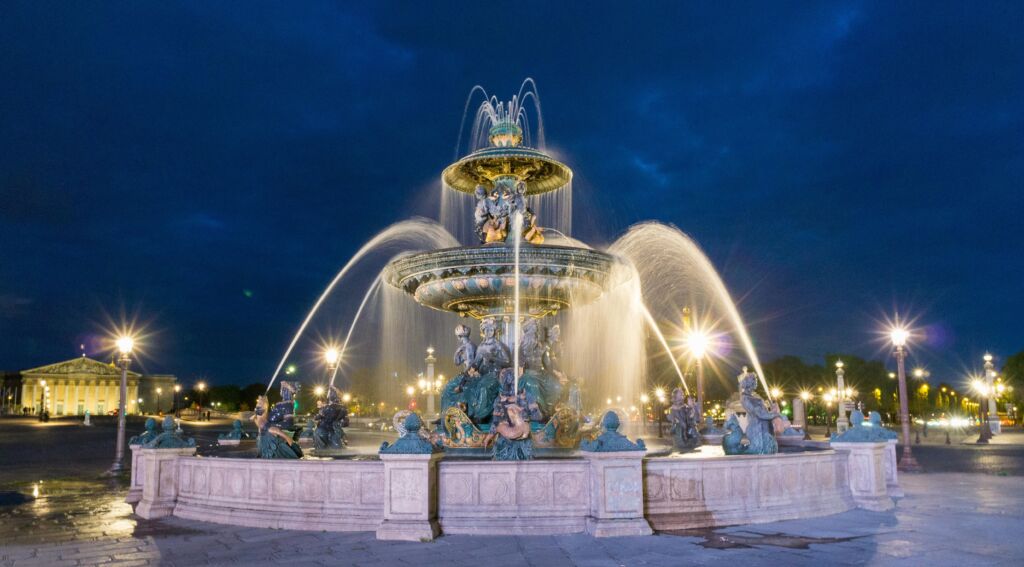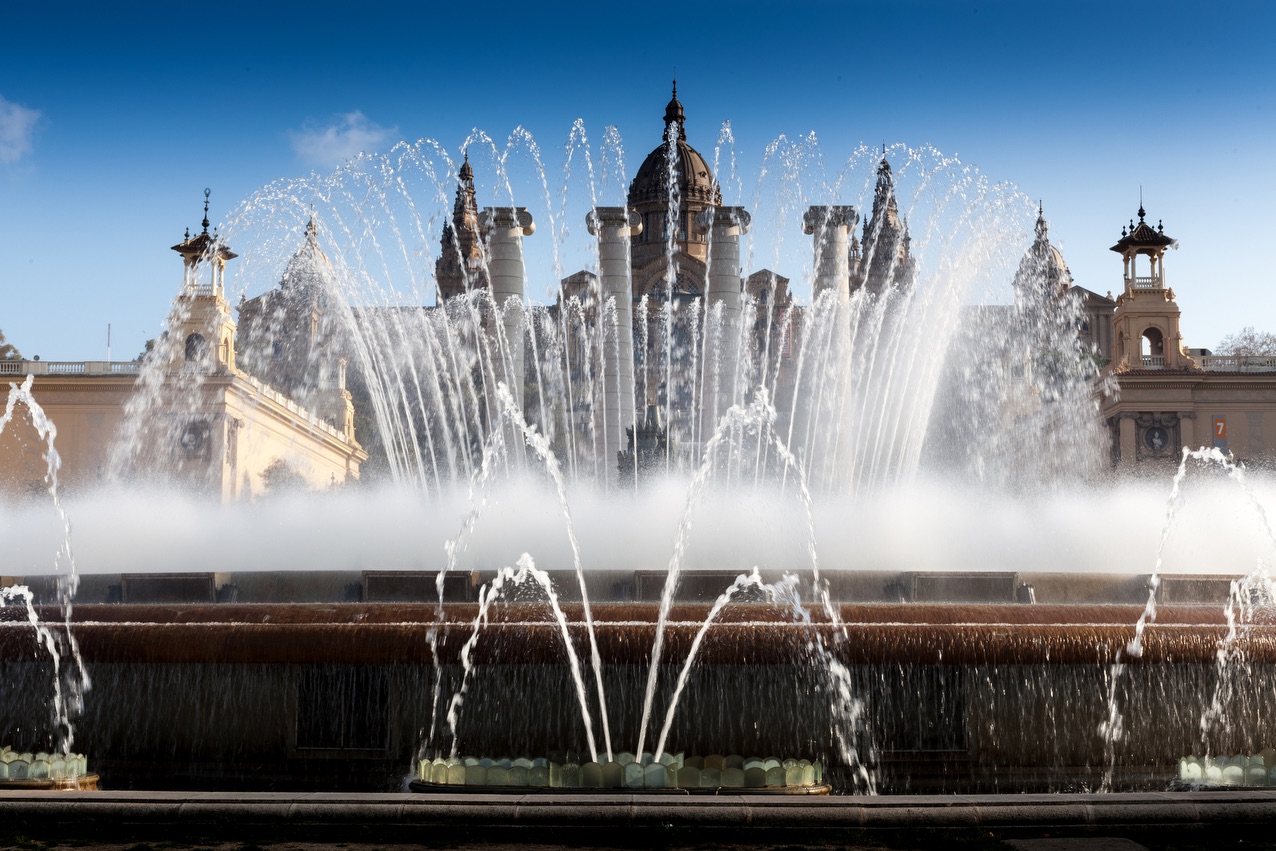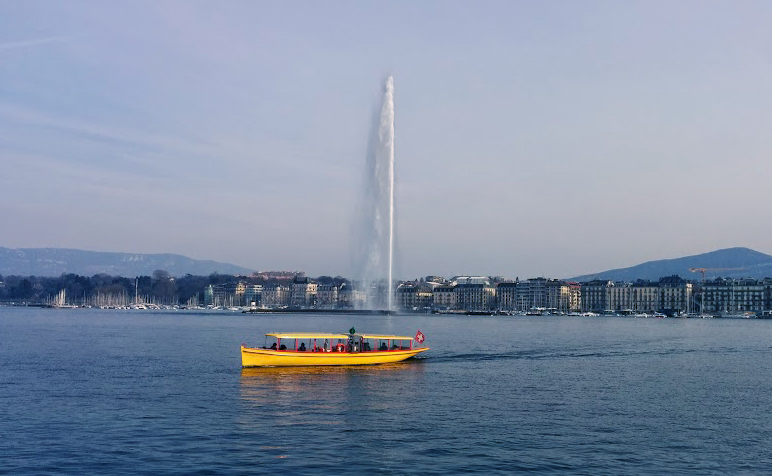Decorative public fountains serve as more than just simple ornamentation or possible sources of drinkable water. They are often a centerpiece within urban landscapes, providing a visual anchor that can enhance the aesthetic appeal of plazas, parks, and urban areas. In essence, they draw our eye and tell us where to focus. Additionally, the movement and sound of water can bring a sense of nature and tranquility to an otherwise artificial setting. Further, fountains often reflect the cultural or historical context of their location or by their design.

This connection to water and the calming sound of running water, even in areas where water isn’t readily expected, can encourage people to relax and engage with one another. By enhancing the area’s attractiveness and usability, fountains can contribute to a greater sense of civic pride and encourage people to spend more time outdoors. Also, if the fountain becomes iconic, it can become a well-known tourist attraction and contribute to the local economy.
Magic Fountain of Montjuic, Barcelona, Spain 🇪🇸
The Magic Fountain of Montjuic typically has show times on Thursday, Friday and Saturday evenings – more during the summer.

The Magic Fountain of Montjuïc was constructed for the 1929 World’s Fair. Today it is a celebrated landmark in Barcelona that attracts millions of visitors to be entertained. A couple of nights a week, the fountain’s water is choreographed to sync with lights and music that ranges from classical to more modern genres. The stunning displays last about 15 minutes and are free to all.Situated at the foot of Montjuïc hill, The Magic Fountain is within walking distance of other attractions like The National Art Museum of Catalonia (Palau Nacional) and Plaça d’Espanya – but visitors will find dazzling experiences all around. The fountain’s iconic status contributes significantly to the city’s appeal as a vibrant and engaging destination.
If you’re interested in a more in depth look at Barcelona, you may be interested in:
Trevi Fountain, Rome, Italy 🇮🇹
Like the Roman Colosseum, Trevi Fountain is made from Travertine stone quarried near Tivoli, Italy.

The Trevi Fountain—an iconic 18th-century Baroque masterpiece in Rome, Italy—is located near both the Pantheon and the Colosseum. The fountain itself is a sizable pool of water at the base of dramatic sculptures depicting Oceanus, the god of the sea, and other figures of Roman mythology. Beyond its visual appeal, the fountain marks the terminal point of an ancient Roman aqueduct still in use today, thus connecting modern and ancient Rome.
As one of Rome’s most beloved and recognizable landmarks, the Trevi Fountain is a major magnet for tourism, drawing millions of visitors each year. Many come to take part in the romantic tradition of tossing coins over their shoulders while facing away from its waters. This wish upon the fountain is believed to ensure the traveler’s return to Rome. While tossing coins into the fountain is allowed, it is illegal to remove them. This allows city officials to collect an estimated amount of €3,000 per day several times a week to fund local welfare projects.
This makes the Trevi Fountain a unique combination of tourist attraction, historical cornerstone and a source of funds for local causes.
International Fountain, Seattle Center, Seattle, Washington, USA 🇺🇸
Designed to reflect “mankind’s efforts to explore the farthest reaches of outer space.”

Both the International Fountain and the Space Needle were constructed to be major attractions when Seattle hosted the World’s Fair in 1962. While the Space Needle gets to be a part of the Seattle skyline, the International Fountain is the centerpiece of the sprawling Seattle Center. The fountain has a large, shallow bowl and numerous jets that choreograph water displays synchronized to music. Visitors are encouraged to engage with the fountain and play in the fountain area.
Surrounding the fountain, the Seattle Center offers an array of attractions for both locals and visitors. These include the iconic Space Needle, a planetarium, the Museum of Pop Culture (MoPOP), and the Pacific Science Center. There are even multi-use indoor and outdoor stadiums.
The Seattle Center represents the city’s forward-thinking spirit and community gathering. The constant flow of tourists contributes significantly to the local economy, supporting businesses in the surrounding areas and solidifying the Seattle Center’s role as a vital cultural and economic engine for the region.
Jet d’Eau, Geneva, Switzerland 🇨🇭
This iconic fountain was originally built as a safety valve for a hydraulic power network.

Jet d’Eau is a towering water fountain located in Lake Geneva that shoots water 140 meters high. It was originally created in the late 19th century as a safety valve for a hydraulic power network, but its aesthetic appeal quickly transformed it into a beloved landmark. Its powerful stream is visible from across the city and serves as a reminder of Geneva’s unique character – as well as its connection to the natural beauty of Lake Geneva and the surrounding mountains.
Jet d’Eau is frequently featured in the city’s branding and is a focal point for celebrations and civic events. As one of Geneva’s most recognizable attractions, Jet d’Eau draws countless tourists year-round. Visitors flock to the shores of Lake Geneva to witness the fountain’s water propelling skyward, making Jet d’Eau a prime spot for photographs and selfies.
Buckingham Fountain, Grant Park, Chicago, Illinois, USA 🇺🇸
Buckingham Fountain is listed on the US National Register of Historic Places.

Buckingham Fountain has been the centerpiece of Grant Park in Chicago on the shores of Lake Michigan since 1927. As one of the largest fountains in the world, it not only draws its inspiration from the Latona Fountain at Versailles – its design incorporates four seahorse sculptures to represent the states bordering Lake Michigan: Illinois, Wisconsin, Michigan, and Indiana. The fountain serves as a focal point for civic gatherings and celebrations, including Barack Obama’s presidential victory speech in 2008 after his first election.
As a premier tourist attraction, Buckingham Fountain draws millions of visitors annually to witness its water displays and evening light and music shows. Located not far from Millennium Park and the Art Institute of Chicago, it’s a must-see destination for those exploring the city’s cultural landscape. The tradition of photographing and admiring the fountain against the backdrop of the Chicago skyline makes it an iconic image that has long been associated with The Windy City.
The sound of running water has been shown to be effective in the reduction of the stress hormones epinephrine and cortisol. A reduction in these hormones has been proven to help reduce anxiety. Water, in all its forms, releases negatively charged ions into the air, which combats free radicals and purifies the air.
As a place of cultural reflection that adds value that can’t always be measured, fountains can be a fantastic place to find an authentic local experience. There, you will find locals gathering and socializing—and even children playing. Maybe you’ll also discover they’re a great place to make a wish to further your travels!
Have you ever visited a fountain that helped you relax or quenched your experience?